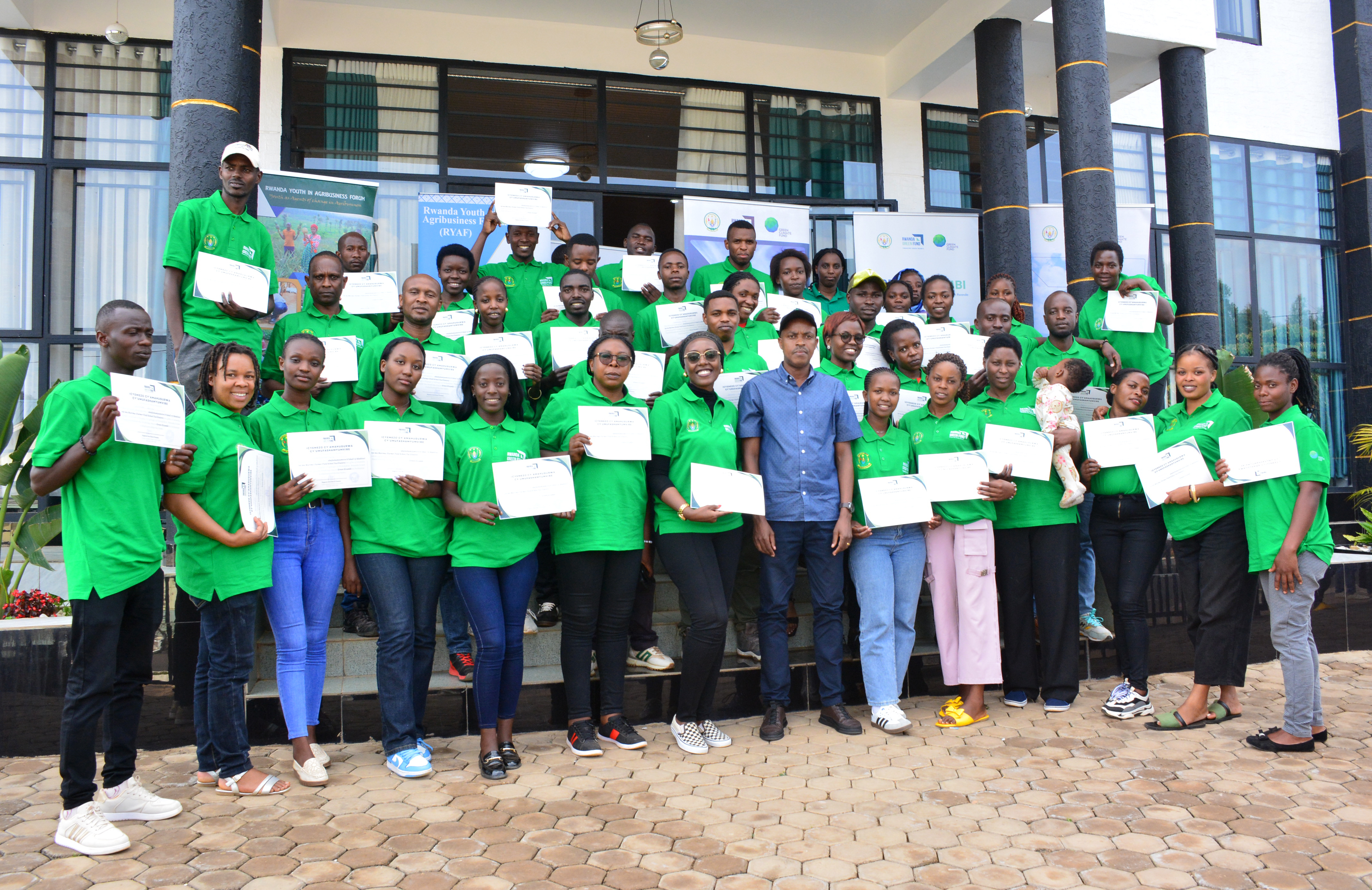A series of training workshops for members and staff of Rwanda Youth in Agribusiness Forum concluded on March 07, 2025, participated by 152 youth from different districts in the northern province of Rwanda, the training, was organized by Green Fund Rwanda under its Green Gicumbi project in partnership with RYAF.
Training program titled Strengthening the Capacity of Youth Engagement in Green Opportunities (YEGO) The goal of the training was to give youth essential knowledge and abilities in several sectors, such as Climate-smart agriculture, Sustainable land management, Agroforestry, Climate-resilient settlements, and Sustainable Forest management.
In the previous cohorts, trainees received various pieces of advice from Green Gicumbi and RYAF leaders.
Jean Marie Vianney Rwiririza RYAF CEO thanked Green Gicumbi for the excellent collaboration with RYAF and encouraged RYAF members to utilize the skills acquired during this training.
Mr. Kagenza Jean Marie Vianney, the Green Gicumbi Project Coordinator, reminded RYAF members that the knowledge they gain from this training should be applied in their communities to help residents understand climate change-related issues.
He urged them to develop innovative projects that provide solutions to climate change challenges by creating climate-resilient jobs. He also emphasized that their agricultural activities should be both climate-smart and environmentally friendly.
RYAF Chairperson Sakina Usengimana in the closing remarks on this training said they organized this training after realizing that climate change impacts agriculture. They chose to train young people in agribusiness and decided to learn from Green Gicumbi, as they had successfully implemented similar initiatives that brought significant changes to agriculture.
She said, “Nowadays, we face extreme heat, and heavy rains in some areas cause a lot of damage. The weather has changed a lot. That’s why we decided to train young farmers in climate-resilient agriculture.
Through the Green Gicumbi project, we thought, ‘Let’s learn from those who have succeeded and see how they did it.’ We aim to use climate-smart farming methods that can handle climate change. We believe the skills learned will soon bring good results.”
This training was provided to 152 RYAF members and staff, who were divided into three cohorts.
RYAF Communication Team

